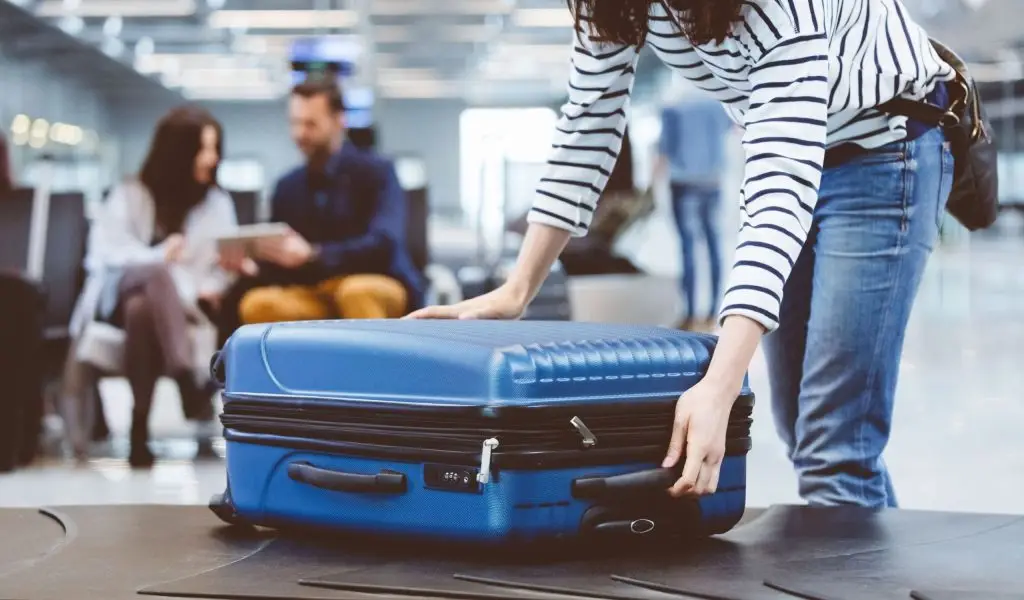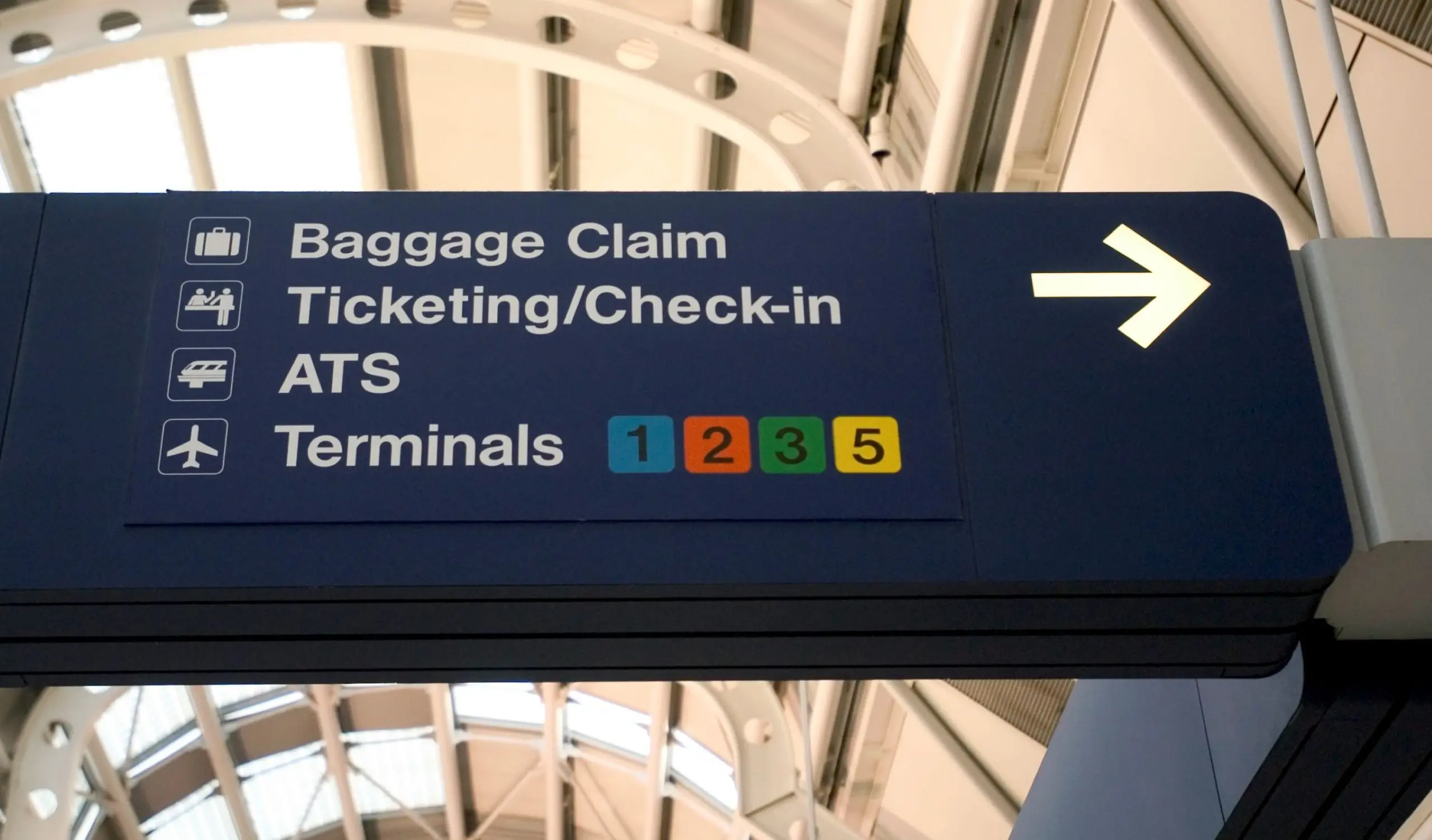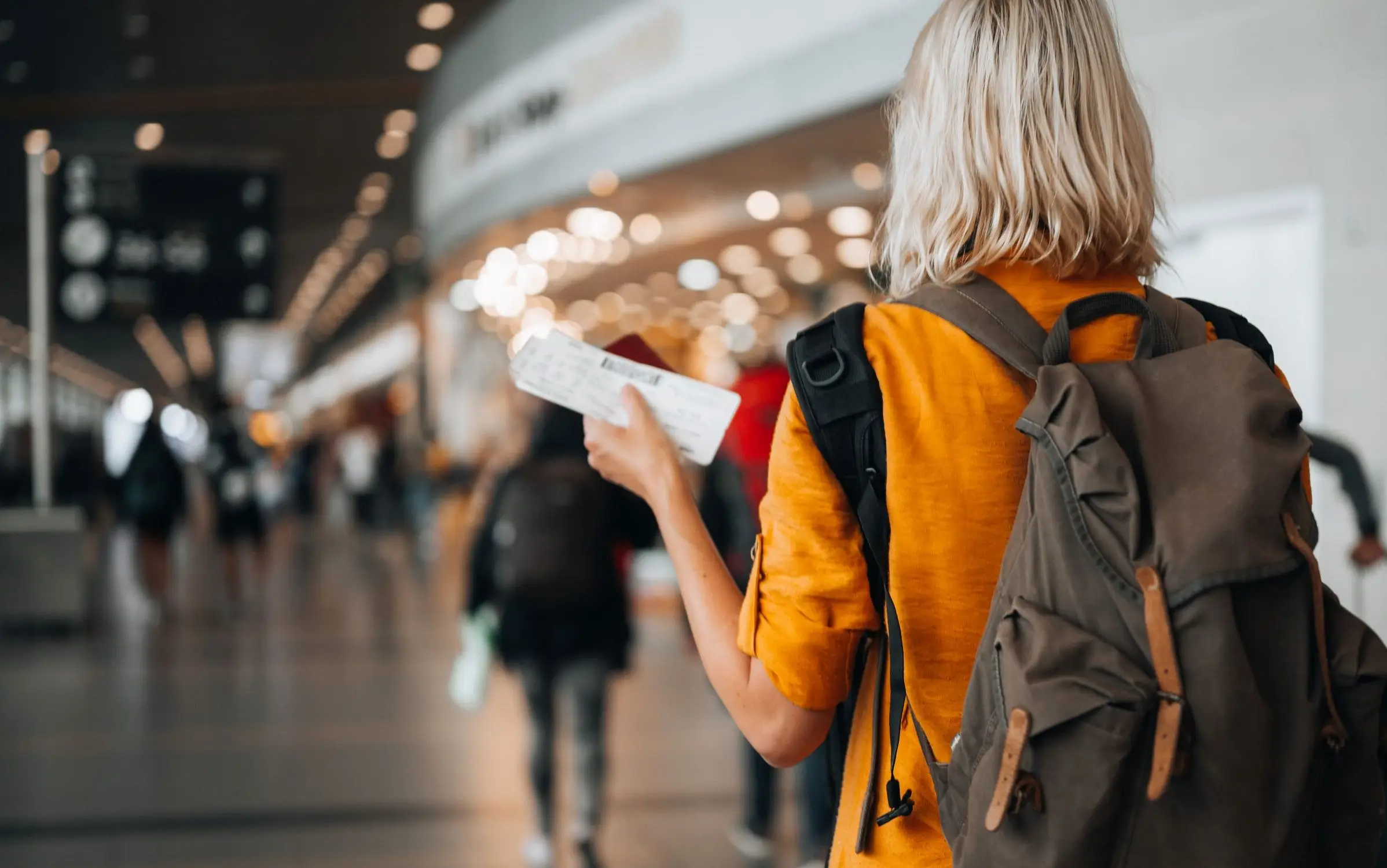At a glance: If your luggage is lost, delayed, or damaged at the airport, this guide covers everything you need to know to manage the situation effectively. Discover step-by-step actions like reporting at the baggage desk, filing a Property Irregularity Report (PIR), and tracking your luggage status. Learn how to claim compensation under the Montreal Convention and leverage travel insurance for additional cover, plus tips to prevent future luggage mishaps.
Imagine getting to the airport, ready to start your holiday, only to discover your luggage hasn’t arrived with you. It’s enough to throw your whole trip off balance before it’s even begun. We’ve put together a handy guide on what to do if your luggage goes missing. Plus, we’ll show you how the right travel insurance can step in, ease stress and get you back on track.
What to do if the airport loses your luggage
Head to the baggage desk
If you find yourself with missing luggage, the first thing to do is to go straight to the airline’s baggage service desk and report it before you leave. The airline representative might ask for your luggage claim tag (this is usually stuck to your ticket or passport at check-in) and your boarding pass to get your flight details, then if your luggage is at the current airport, they’ll help you locate it.
But if your luggage ends up missing somewhere between your first and final stop, they’ll need a few more details, such as the colour, what’s inside, the flight number, and contact information to get in touch with you once they locate it.
Remember, most lost luggage is found and returned within 48 hours. The airline may give a baggage tracking number so you can monitor progress online.
File a Property Irregularity Report (PIR)
To start your claims process, it’s important that you fill out a Property Irregularity Report (PIR) at the airport. This is a formal record of your missing luggage and is essential if you want to:
- Claim expenses from the airline
- Claim compensation later
- Make a claim through your travel insurance
If you notice your bag has gone missing, it’s important to fill out a PIR straight away. Then the airline starts the search process and gives you a reference number, which you’ll need if you end up making a claim.
Although the airline won’t deal with insurance claims directly, they can provide a tracking number, a confirmation letter for the delay or loss, and any necessary receipts. These will come in handy when you send off your claim to your insurance provider.
What to do if your luggage gets damaged
Report the damage straight away
If your luggage turns up, but is damaged or has missing items, be sure to inform the airline before you leave.
- Report the damage to the airline immediately – If your bag arrives broken, torn, or with missing items, report the damage before you leave the airport. Head to the baggage help desk again and show them the damage. If you wait until you get home, it could be harder to prove the bag was damaged in transit.
- Take photos and file a detailed report – take clear photos of the damage and keep the luggage tag attached to the suitcase. You’ll likely need to fill in a damage report with a description of the bag, photos of the damaged area, receipts or an estimated value of the bag, and details about the lost or broken content, if any.
The more evidence you can provide, the easier it will be to make a claim.
- Your insurance may cover damaged luggage – depending on your policy, your insurance policy may cover the cost of repairing or replacing your luggage and replacing the damaged contents inside the bag.
How to get compensation for lost, delayed or damaged luggage
Airline responsibilities under the Montreal Convention
Under the Montreal Convention, airlines are required to compensate if your luggage is delayed, lost, or damaged. Here’s what that means for you;
- They’ll cover the cost of essential items (like clothes or toiletries) while your luggage is missing
- Compensate you for lost or damaged contents if your luggage is never found
- And if your luggage is damaged, they’re obliged to make it right.
But airline compensation is limited, and most have a cap of around £1,200, which includes the total value of your luggage and everything inside. If you had expensive luggage contents or were travelling with multiple airlines on connecting flights, getting fully reimbursed can be a challenge. And, claims often require proper documentation, and lots of waiting time.
Travel insurance to save the day
Depending on your level of cover, your travel insurance may include protection for the following situations:
- Lost luggage and personal possessions, even if the airline refuses to fully cover the loss
- Delayed luggage (to cover the cost of essentials while you wait)
- Get support to deal with the airline to make your claim
- Any emergency purchases made while you wait for your bag
Just be sure to keep receipts for emergency purchases and copies of your PIR and flight documents. You’ll need them to submit your insurance claim.
How to claim when your luggage is permanently lost
If your luggage hasn’t turned up after 21 days, it’s officially declared permanently lost. This is when you can start the process of claiming compensation from both the airline and your travel insurance provider. Here’s what you can do:
Here’s what to do:
From the airline – you’ll need to complete a claim form that lists everything in your bag. They might ask for receipts or proof of purchase, so get those ready.
From your travel insurer – if your policy includes baggage cover, this could help you recover any extra losses that the airline doesn’t cover. This would be helpful if you had valuables or essentials in your luggage. Usually, insurers will ask for a copy of your Property Irregularity Report (PIR) along with proof of your expenses.
Check the small print in your policy for any limits or exclusions. Some insurers require you to declare high value items before you travel.
Easy ways to prevent your bag from going missing in the future
While you can’t always avoid luggage disasters, there are a few things you can do to prevent them from happening in the future.
- Label your bag inside and out with your contact details like name, address, phone number and accommodation number in the country you’re travelling to.
- Remove any old airline tags to avoid confusion.
- Pack essentials and valuables preferably in your hand luggage, like medication and electronics.
- Consider using smart trackers like an Apple AirTag or Tile to track the movement of your luggage.
- Arrive on time or a little early to avoid last-minute check-ins which can increase the risk of a mix-up or your bag not making it on the same flight as you.
What travel insurance covers
A good travel insurance policy acts as your safety net for any unexpected hiccups during your trip or even before you’ve set off. With Avanti Travel Insurance, you’ll get:
- Cover for lost, stolen, or damaged luggage
- Reimbursement for emergency purchases while your bag is delayed
- Cover for personal belongings and valuables
- 24/7 emergency assistance when you need it most
- Optional cover for high value items and gadgets




